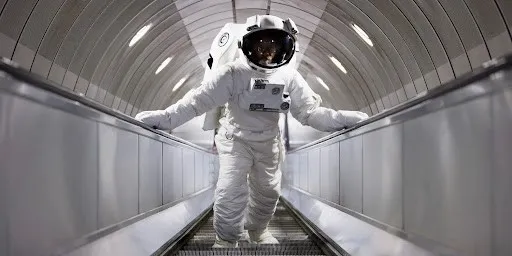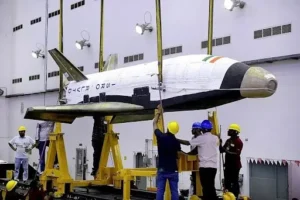Space Tourism: The Final Frontier in Travel

Space tourism makes it possible for the dream that had been inconceivable until now to come true: traveling at a distance greater than that of the Earth. As private entrepreneurs drive the growth of commercial space travel, a new industry is emerging that has huge potential to give everyone a chance to see an image of their planet from above, from space. This article describes the development of space tourism, assesses its current state, new technologies that make space tourism possible, potential benefits and viability, challenges that currently exist and may possibly appear in the future.
Introduction to Space Tourism
Space tourism refers to commercial services that allow non-astronauts to fly to space. This vision has become a reality within the last few years as a result of substantial progress in aerospace technology and private corporations’ capital input. SpaceX, Blue Origin, and Virgin Galactic are have revolutionized the niche of passenger flights in space, in which the government operates give way to businesses that make the experience available to people.
Evolution of Space Tourism
Space tourism as a real concept began to gain popularity in the early 2000s after the first self-funded space tourists visited the International Space Station using Russian Soyuz vehicles. Such trips can be considered as a starting point for further formation and development of more consistent and viable options for commercial space tourism. Technological and economic progress within the past 20 years was quite extensive, and nowadays private companies are the ones that drive the process of space travel making them available to the public.
Technological Innovations in Space Travel

The possibility of significant progress in space tourism depends, among other factors, on the development of rocket technology, spacecraft, and safety systems. Notably, the achievement in reusable rocket technology, which was made possible due to commercial efforts by SpaceX, had the most profound impact on the cost of launching into space. This, in turn, allowed the consideration of space tourism Bandar togel as a regular commercial activity . Furthermore, spacecraft specifically designed for comfort and observation windows, such as Virgin Galactic’s SpaceShipTwo, contribute to the attractiveness of the tourist activity.
Benefits of Space Tourism

These advantages are beyond the mere excitement and love for new experiences that a unique space adventure holds. Economically, the space tourism sector could become an industry on a global scale; new jobs will emerge, and technology development will develop at an increased pace. Scientifically, frequent space skyrocketing could stimulate research in astronomy, physics, and other spheres, and create an opportunity for new discoveries and new technologies. Cultural potential is also substantial; people who have seen Earth from the outside strive to preserve it in the ways only space travellers are capable of.
Challenges Facing Space Tourism

Despite all the excitement about the possibility of space tourism, there are significant barriers. First, the cost makes space out of reach for all but the wealthiest people. The cost of a ticket is hundreds of thousands or even millions of dollars . Second, safety is a critical issue, as noted above. Space travel carries a much greater risk than any mode of transportation, and the industry is still building its track record. Third, the environmental harm from frequent launches is also a concern. It includes emissions as well as increased likelihood of causing or speeding up climate change .
Regulatory and Ethical Considerations
In conclusion, as space tourism progresses, an urgent need for formation of the full-scale regulatory environment becomes necessary to guarantee orbital activities safety and sustainability. Space traffic control, debris reduction and smoothing, and the permanent preservation of orbital areas necessitate immediate attention. There are also ethical concerns about the democratization and convenience of participating in space travel. Who should make it into space?
The Future of Space Tourism

Overall, the future of space tourism is clouded, but still bright. Growing interest from investors and the public and improvements in technology will contribute to developing this sector . One can expect that in the future, orbital hotels, lunar visits, and even Mars tourism will be feasible . As companies leverage their competitive advantages to reduce the costs of operating in space, this activity will be more present in people’s lives.
Charting New Territories
In sum, space tourism is a unique combination of adventure, science, and a business opportunity. It is a profoundly novel understanding of exploration and our place in the universe. Real space tourism is certain to face many obstacles in the years ahead. However, the commitment of business ventures to overcome these challenges in the subsequent years may be enough to bridge the difference between today’s dream and reality. Space tourism still has incredible potential, expanding the borders of human experience and encouraging future generations to look to the sky.
